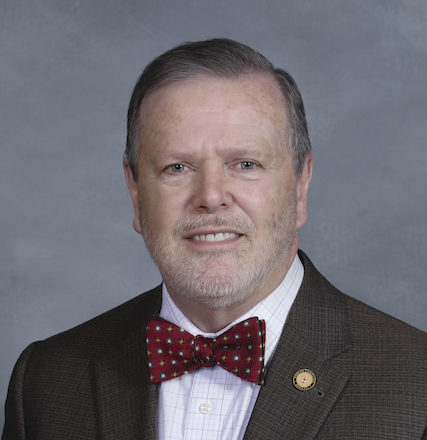North Carolina Gov. Roy Cooper said, “pandemics cannot be partisan.” The coronavirus may not be partisan, but deciding the best way to deal with it certainly is.
Republican state senators have gone after Cooper for his decision that churches and other houses of worship can have no more than 10 people attend an indoor service.
Now Republican state senators, including President Pro Tem of the Senate Sen. Phil Berger, are asking that counties be given the flexibility to decide whether hair salons and barbershops can open.
The press release from Berger’s office notes that 25 states “including nearly every state in the Southeast, have reopened hair salons and barber ships in some capacity, and three more have announced reopenings in the next few days.”
Hair salons and barbershops are primarily small businesses and the owners and employees can’t make a living since the stay-at-home order has forced them to shut down. The press release also states that hundreds of thousands of unemployment applications are still unpaid by the Cooper administration, so these people have no source of income.
Berger said, “It’s time to follow the lead of the majority of states in our region and the country. Hair salon owners and employees can’t work and many of them still can’t get unemployment assistance from the Cooper administration. Gov. Cooper needs to provide counties with the flexibility to reopen hair salons and barber shops if they choose.”
Although 99 out of 100 counties in the state have had at least one case of COVID-19 reported, 15 of those counties have had fewer than 10 cases reported and 24 counties have not reported a single COVID-19 death.
Yet, the stay-at-home order, including Phase 1 of the reopening process, makes no distinction between these counties with an extremely limited number of cases and counties such as Guilford that has had 670 reported COVID-19 cases and 44 deaths.
Berger added, “The majority of states in our region and the country have reviewed the science, facts and data and reached a different conclusion than Gov. Cooper’s. What is his strategic endgame in choosing a different path based on similar facts and data? We need a view into his administration’s goals and thinking.”


I think he needs to be more worried about his own actions than putting others lives at risk of catching covid!
All I’ve got to say is Roy is keeping his hair cut.
Limiting 10 people inside a church to worship is insane when all these stores Walmart, Lowes, all grocery stores, pharmacy,s all have many, many people in them! The governor is playing games with the faithful. I resent his actions.!
Yes, I can worship anywhere, in a car, sitting in my yard, camping, boating, swimming, walking on the beach, even watching Charles Stanley on TV or my pastor on the internet. I love to be in the House of the Lord! I love to sing His praises with other believers, I love hearing the piano played for the Lord, I love to hear people praying special prayers for whatever the need is! I love to see the beautiful wooden cross behind the choir loft! It is a visual reminder of Christ’s love for me and how He willingly gave His life up for me and all that would come! No, I don’t need a building but I am comforted, lifted up, encouraged, loved, and surrounded by fellow believers who want and need to be there! I do not want to relinquish my religious freedom for any reason
. When 911 happened I was at work and saw the 2nd plane fly head-on into the 2nd World Trade Center Building! I was horrified, couldn’t concentrate so I left work and went directly to my church to pray for our country! I feel closer to Lord, sometimes, in His sanctuary! Most people say, today, it is just a building but not to me. It is a place where I feel the wonderful calming and loving presence of God. The State Government needs to let us open and let local churches decide. If mine would not open then I can find another church to worship Him in His House.
Everything should be open. People have enough common sense to open and run their businesses. People at high risk can practice the same risk aversion as they did before – avoid crowds and sick people. How hard is that? I just read that the NY governor has extended their restrictions thru the 2nd week of June. The Dems are doing all they can to wreck the economy so the President Trump can be Hoover’d.